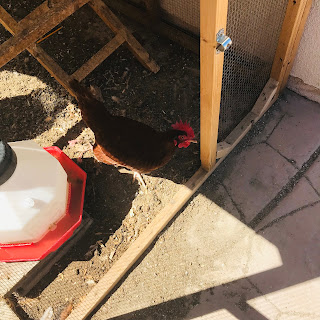A Memoir To Angelica

A Memoir To Angelica August 14, 2022 (Angelica's gravesite.) It was so sudden. We don't know how it happened, but dear Buff Orpington Angelica is not with us anymore. She's joined Washington a better place now. On the morning of August 7, 2022, Angelica passed away on floor of the run. We found her later in the afternoon. There was no animal, no symptoms, no sign to tell us she was going to pass. She was so happy here, I wish I knew what killed her. The day before she died, I had one last chance to hold her and talk to her, and I'm so glad I did. I'll never forget that evening, especially because Angelica pooped on my shoes! Angelica was the sweetest hen to ever live. From the day we brought her home, she was the most happiest and had the most personality of the whole flock. She loved taking taking treats from our hands, always running over as soon as she heard us taking out the mealworm jar, and followed us around everywhere. Sometimes she was a bit harsh with he...








